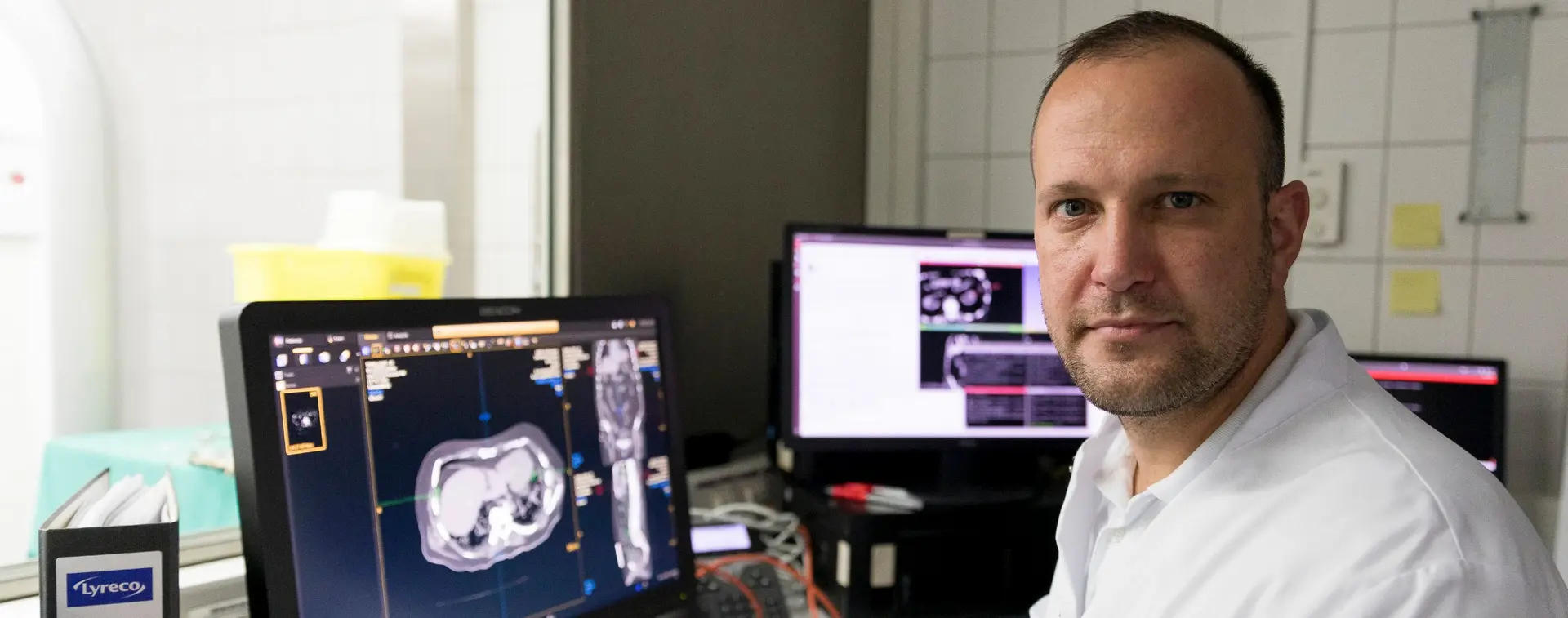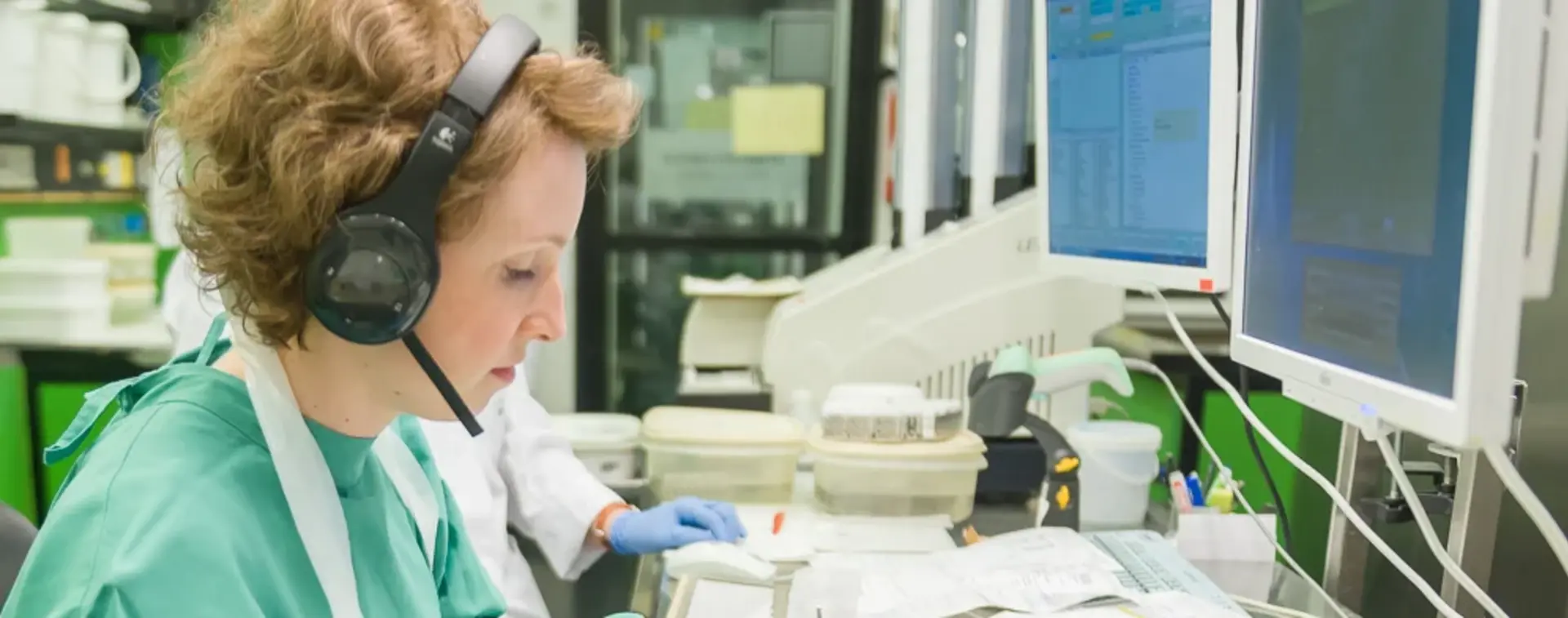About the project
The National Autopsy Network (NATON) brings together the expertise of university and non-university specialists in Germany who deal with autopsies and the analysis of post-mortem samples. The aim of NATON is to promote and support autopsy research in a variety of areas and to act as a platform for pandemic preparedness. Postmortem examinations have long been an important tool for quality assurance in medicine and can improve our understanding of the pathophysiology of infectious diseases, among other things. The added value of post-mortems became particularly clear during the COVID-19 pandemic. For example, autopsy-based research has shown that pulmonary (micro)vascular thromboembolism, systemic viral spread and the complex interplay between viruses and the immune system play a crucial role in severe COVID-19 disease and fatal outcomes.
NATON has been running as a sub-project of the research line since the start of the 2nd funding phase as a follow-up project to DEFEAT PANDEMIcs. The NATON infrastructure was established in January 2023 (as the "NATON 2.0" project).
- Provision of a long-term and highly complementary infrastructure and services driven by the community.
- Networking the expertise of pathology, neuropathology and forensic medicine for collaborative autopsy sample collection and processing.
- Providing a central information exchange point for NUM and external stakeholders, including the public health sector
Autopsy-based research offers enormous potential that remained largely untapped for a long time. Not least the COVID-19 pandemic showed an enormous need for pathological data on the novel virus, which could not be met by the autopsy numbers at individual centres and the lack of multicentre approaches. The COVID-19 pandemic also showed how important it is to strengthen research into pandemic prevention, as the knowledge gained must be used to respond to any "new" pandemic as early as possible and as appropriately as possible. To this end, efficient internal and interdisciplinary communication and the reciprocal transfer of information from and to the public health system are essential.
NATON is divided into three work packages:
1. data platform
The core of the data platform is the NAREG (National Autopsy Registry), which acts as the central data platform and electronic backbone for NATON. The data platform will ensure the operation of this basic IT functionality and thus the operation and continuous adaptation of NAREG. The data platform also provides support for NATON partners and external researchers, optimises user-friendliness and is responsible for ensuring data security and data transfer. The data platform will also curate, standardise and harmonise the data. The data in NAREG is structured and semantically annotated. In order to promote this standardisation of autopsy-specific data, a core pathology dataset will be developed within the data platform.
2. method platform
The methods platform checks the technical feasibility of external and internal research projects and enquiries and promotes their quality by integrating the organ-specific expertise of the experts involved. This is essential, as there is still very little experience with post-mortem samples among most researchers. In addition, organ-specific diagnostics for complex deaths are carried out in the methods platform and diagnostic criteria and methods for validated findings are continuously reviewed. The platform also ensures the best possible quality and harmonisation of autopsy samples and develops recommendations for improving sample quality and collection. Another task within the methods platform is to promote higher autopsy numbers by supporting local autopsy centres and active capacity building in the specialist societies. In an effort to be able to report current developments and changes to relevant stakeholders in the public health system in a timely manner, the data received in NAREG is monitored and surveillance indicators are used.
3 NATON Office
The NATON Office connects and coordinates NATON. The Office is responsible for both internal and external communication. This includes coordinating and supporting the NATON partners, monitoring the project infrastructure, internal communication, reporting and general network organisation. It also ensures communication with the NUM partners and stakeholders, the planning of meetings and general public relations and community building.
The NATON infrastructure was built on the existing NATON consortium in January 2023 as the "NATON 2.0" project. The aim is to provide a long-term and highly complementary infrastructure, to network the expertise of pathology, neuropathology and forensic medicine and to provide a central information exchange point for NUM and external stakeholders.
NATON (National Autopsy Network) pools the expertise of university and non-university specialists in Germany who deal with autopsies and the analysis of post-mortem samples. The National Autopsy Registry (NAREG) - until 2023 the DeRegCOVID (German COVID-19 autopsy registry) - acts as the electronic backbone of the network. NATON was established in 2022 as the successor to DEFEAT PANDEMIcs and has been running as a NUM sub-project of the research line since the start of the second funding phase.
DEFEAT PANDEMIcs (German Research Network for Autopsies during Pandemics) was established in 2020 in response to the COVID-19 pandemic and was expanded and continued as NATON (National Autopsy Network) in 2022. Since then, the network has represented a globally unique approach to the systematic and collaborative use of autopsies to understand the pathophysiology of emerging diseases. Within the DEFEAT PANDEMIcs consortium, findings on the development and spread of pandemics have been collected, expertise pooled and exchanged, thus improving the management and control of pandemics.
Highlights

- First nationwide cooperation between the departments of pathology, neuropathology and forensic medicine
- Pooling the expertise of almost all university and many non-university post-mortem centres (including two international centres)
- Development and establishment of the world's first national multicentre COVID-19 autopsy study with a collection of more than 1,800 autopsy data sets and information on more than 21,000 post-mortem samples
- Publication of more than 160 scientific articles in renowned peer-reviewed journals
- Establishment of NATON as a central communication hub for the public, politicians and the healthcare system, with the network successfully working towards amending the Infection Protection Act (§§ 25, 60 IfSG)






